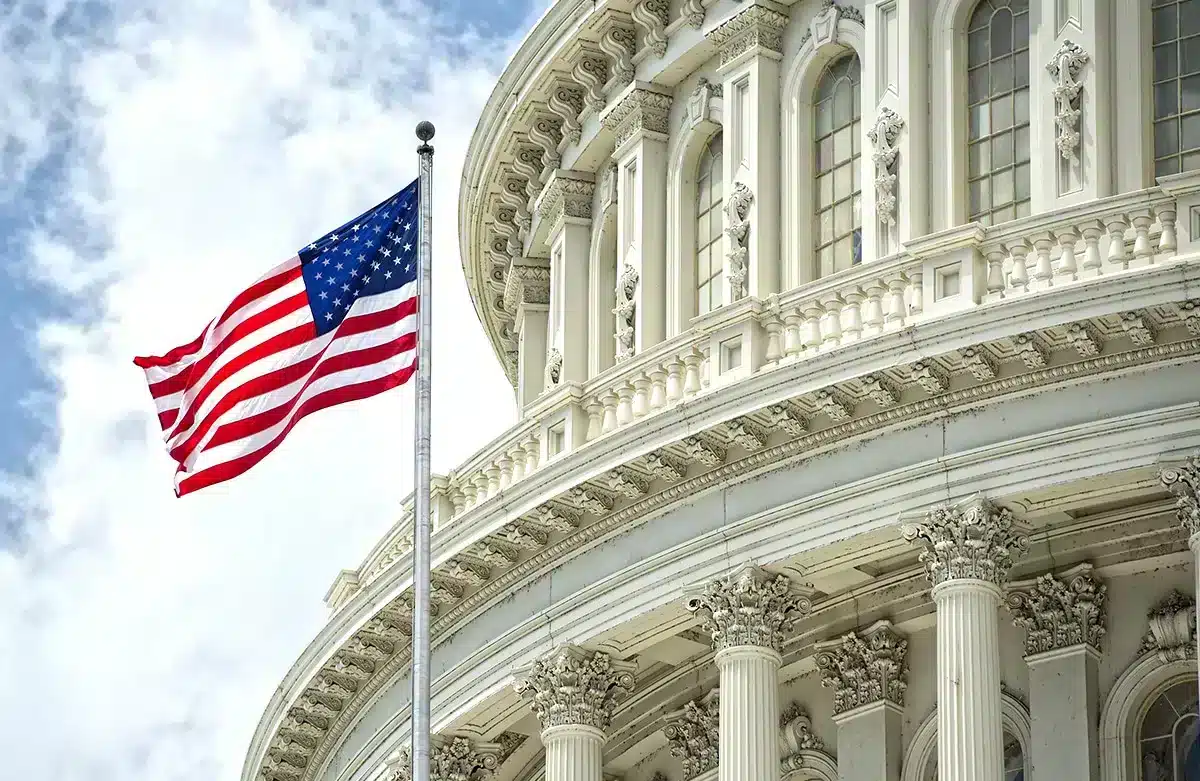
Signed into law on March 27, 2020, the Coronavirus Aid, Relief, and Economic Security Act (CARES Act) is a 2 trillion dollar stimulus package created to provide economic relief to businesses and individuals affected by the COVID-19 pandemic.
In this article, we will examine the contents of this package, how it will affect the solar industry and what else needs to be done to keep the solar market afloat in these strange times.
The Good
Title 1 of the CARES Act includes what is called a Paycheck Protection Program, aimed at helping small businesses (less than 500 employees) continue to keep their companies running. A $349 billion loan program will help ensure that employees of these companies continue to be paid throughout the crisis. Since most solar companies are considered small businesses, this will likely be a great help throughout the Coronavirus pandemic. On April 23rd, an additional $484 billion was added to the pot to further aid small businesses as well as create more funding for COVID-19 tests in hospitals.
Also listed on the business side of the Act is a new employee retention credit that aims to give business owners a payroll tax credit to continue to pay their employees if their gross receipts have declined by 50% or more compared to the same quarter of the previous year.
Solar installers who are self-employed or independent contractors who may have contracted COVID-19 and/or must self-quarantine now qualify for unemployment benefits as well and will earn an extra $600 per week for 4 months on top of the usual benefits. This provision also includes those who have to stop working to care for someone who has contracted the virus or need to stay home to care for their children who are no longer going into school due to closures.
If you are the owner of your solar business, you will also notice that you can delay the 6.2% social security tax on your employee’s paychecks with payment for half due by December 2021 and the other half deferred to 2022.
The Bad
One of the main points of contention regarding this stimulus package is the lack of attention spent on the Investment Tax Credit (ITC) that is slowly being phased out until it reaches 0% (and a permanent 10% for commercial projects) in 2022.
With material shortages, disruptions to the supply chain and more installs being put on hold due to state stay-at-home orders, many PV installers are scrambling to get jobs done before 2020 ends so that property owners can benefit from the 26% credit rather than next year’s 22% credit.
The CARES Act has also come under fire since its inception for not including any protections for worker safety. If you operate in a state where solar panels and energy are considered an essential service, your company will get no help or incentives for potentially having to put your teams in harm’s way by continuing to venture out of their homes to perform site assessments and installs.
Some are also arguing that the single stimulus check of $1200 (or $2400 for married couples) offered to Americans who earn less than $75,000/year is nowhere near enough money for people affected by the pandemic to get by (if they are even able to receive it at all). This especially troubling considering no one can be sure how long this crisis will last.
What Needs to be Done
In a letter sent to Congress by the Solar Energy Industry Association (SEIA) and signed by 500 solar installers from all over the United States, appreciation for the swiftness of the CARES Act being enacted was given but with that, advice for how to save the solar industry was also provided.
Analysts estimate “losses between 16% and 30% of volume this year and some sectors could see as much as 50% reduction.” due to the impacts of COVID-19. In a statement, Abigail Ross Hopper, president, and CEO of SEIA says that “As a result of this pandemic, the solar industry stands to lose half of our jobs — that’s 125,000 families who will no longer receive a paycheck. Congress can help stem this tide.”
One way to help the industry and those who work for it is to extend the ITC deadline for this year to allow everyone to get their installs done and materials ordered in time to pass the “Safe Harbor Test” before the credit jumps down to 22% at the end of this December.
The ITC has been lauded as one of the biggest reasons for the solar industry’s growth over the last few years and the industry was already up in arms over the step-down and eventual end of the program. In times like these, solar installers need any incentive they can get to continue to sell and get solar on as many roofs as possible, especially when demand for solar cells has begun to drop since the crisis began.
In Closing
While the CARES Act is a welcome help for many Americans and businesses across the country, there could still be more offered, especially in terms of provisions for the solar and renewable industries. One clear way solution to consider is slowing down the ITC step-down which, as of right now will go ahead as planned by the end of this year.
We at Solargraf are here to help you navigate this situation as best as we can. Request a demo today to see how our features such as permit/stamp orders, e-signatures, live quotes, and team management can help you grow your business all without breaking the bank. We’ve also launched our Remote Sales Toolkit to make sure you have as much information as possible to successfully move your business forward from the comfort of your home.


 United States
United States Germany/Austria
Germany/Austria Brazil
Brazil Netherlands
Netherlands